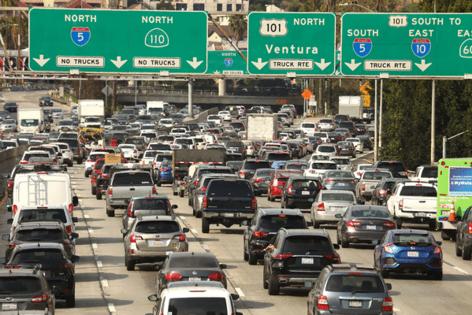Ruling paves way for Biden to approve stricter California vehicle rules, but SCOTUS looms
Published in Automotive News
WASHINGTON — A federal court ruling this week allows California to keep setting air pollution and vehicle emissions standards above and beyond federal limits, with potentially far-reaching impacts for an auto industry that's navigating a bumpy electric transition.
The decision preserves a regulatory double standard across the country. There are 17 states and the District of Columbia that have chosen to adopt some or all aspects of California's stricter vehicle standards, while others — including Michigan — have kept the more lenient federal ones.
“The federal regulations continue to act as the floor for emissions regulations, but California can seek to enact its own more stringent regulatory program above those federal requirements,” the three-judge panel from the U.S. Court of Appeals for the District of Columbia Circuit wrote in their Tuesday decision.
With the legal challenge led by Republican states and fossil fuel groups decided for now — though a potential Supreme Court appeal looms — the focus shifts to the Biden administration's pending decision on whether to approve a new waiver for California. The state is seeking federal approval for even tougher standards beginning in 2026 that mandate a full shift to electric vehicles, placing strain on automakers that have so far struggled through a rocky transition.
“This has been the law of the land for decades,” said Democratic U.S. Rep. Debbie Dingell of Michigan. “The court recognized a regulatory framework the auto industry has long been working under. No one was surprised by this, and it was the right decision.”
The court ruling in the case, known as Ohio v. Environmental Protection Agency, upheld the EPA’s authority to grant California waivers to set its own emissions reduction policies under the Clean Air Act.
Even though the decision preserves a longstanding practice, it is still “a very big deal for the state of Michigan and the auto industry,” according to Patrick Anderson, CEO of East Lansing, Michigan-based Anderson Economics Group.
Unlike recently finalized Biden policies that encourage EVs but do not explicitly require automakers to sell them, pending California regulations would enable a true EV mandate in California and other states that copy its rules.
“This is something quite a bit larger and more intrusive,” said Anderson, comparing the regulations to past ones allowed by EPA waivers.
The California rule package, known as Clean Cars II, will require that 35% of new light-duty vehicles sold in 2026 produce zero emissions. By 2035, the requirement will rise to 100%.
...continued
©2024 www.detroitnews.com. Visit at detroitnews.com. Distributed by Tribune Content Agency, LLC.







Comments